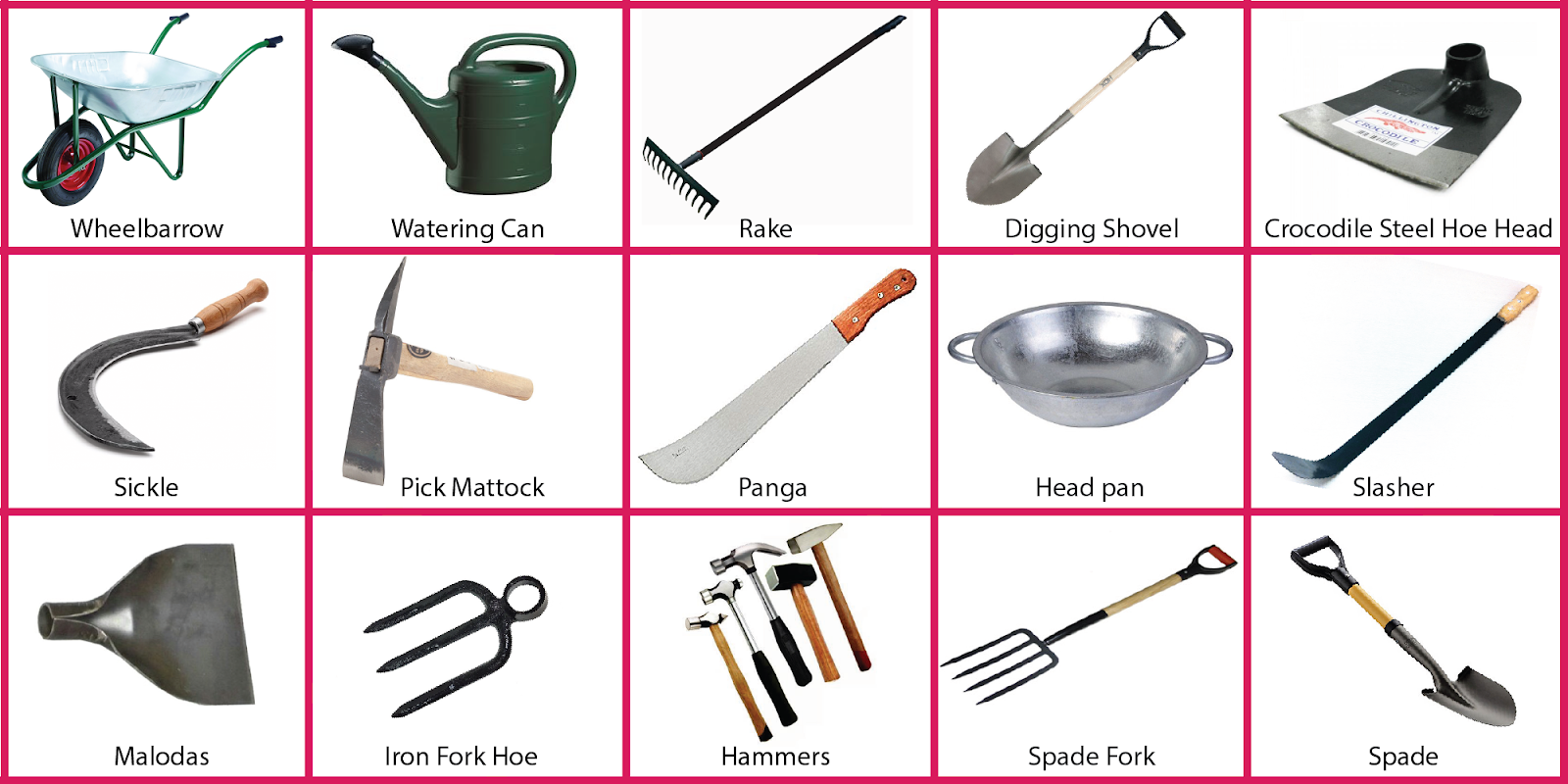Farm tools are the backbone of agricultural practices, enabling farmers to cultivate, harvest, and manage their crops effectively. In an era where efficiency and sustainability are pivotal, understanding the various farm tools name is essential for anyone involved in farming. From simple hand tools to advanced machinery, each tool plays a unique role in the farming process, contributing to productivity and ease of work. The right tools can significantly impact the success of farming operations, helping farmers to maximize their yield while minimizing labor. As agriculture continues to evolve, the tools and equipment used also undergo changes, making it important for farmers to stay informed about the latest innovations and traditional practices alike.
Whether you are a seasoned farmer or just starting your agricultural journey, knowing the names and uses of different farm tools can enhance your efficiency and productivity. In this article, we will explore various types of farm tools, their uses, and practical tips on how to select the best tools for your needs. By familiarizing yourself with these tools, you can ensure that your farming practices are effective and sustainable, leading to a thriving agricultural business.
Understanding the farm tools name is not just about knowing what they are called; it's also about appreciating their importance in the agricultural ecosystem. With the right tools at your disposal, you can tackle various tasks, from preparing the soil to planting seeds and maintaining crops. So, let's dive deeper into the world of farm tools and discover the essential equipment that every farmer should have.
What Are the Basic Farm Tools Name Every Farmer Should Know?
Farm tools can be categorized into several types, each serving a unique purpose in the farming process. Here are some of the essential farm tools name that every farmer should be familiar with:
- Shovel
- Hoe
- Rake
- Pitchfork
- Spade
- Trowel
- Scythe
- Plow
- Seeder
- Harvester
How Do Hand Tools Benefit Small-Scale Farmers?
Hand tools are essential for small-scale farmers who may not have access to larger machinery. These tools are often more affordable, easier to maintain, and can be more practical for smaller plots of land. Some benefits of using hand tools include:
- Cost-effectiveness
- Portability
- Ease of use
- Less environmental impact
What Are the Most Commonly Used Hand Tools in Farming?
Many hand tools are indispensable in everyday farming tasks. Here are some of the most commonly used hand tools:
- Shovel: Used for digging, lifting, and moving bulk materials.
- Hoe: Perfect for cultivating and breaking up soil.
- Rake: Used for gathering leaves or leveling soil.
- Pitchfork: Ideal for lifting and tossing hay or straw.
What Role Do Power Tools Play in Modern Agriculture?
In addition to hand tools, power tools and machinery have revolutionized the farming industry. These tools allow farmers to work more efficiently and handle larger areas of land. Some common power tools include:
- Tractors
- Rotary tillers
- Seed drills
- Combine harvesters
How to Select the Right Farm Tools Name for Your Needs?
Selecting the right farm tools name can significantly impact your farming efficiency. Consider the following factors when choosing tools:
- Type of crops: Different crops may require specific tools.
- Size of your farm: Larger farms may benefit from more advanced machinery.
- Budget: Consider your financial resources when purchasing tools.
- Terrain: The type of land you are working on will influence your tool choices.
What Are Some Innovative Tools Emerging in Agriculture?
Technology continues to advance, leading to the development of innovative farm tools that enhance productivity. Some emerging tools include:
- Smart irrigation systems
- Drones for crop monitoring
- Automated planting machines
- Precision farming tools
How Can Farmers Maintain Their Tools for Longevity?
Proper maintenance of farm tools is crucial for ensuring their longevity and effectiveness. Here are some tips for maintaining your farm tools:
- Clean tools after each use to remove dirt and debris.
- Sharpen blades regularly to ensure efficiency.
- Store tools in a dry place to prevent rust and damage.
- Inspect tools periodically for any signs of wear or damage.
What Are the Key Differences Between Traditional and Modern Farm Tools?
Farm tools have evolved significantly over the years. Understanding the differences between traditional and modern tools can help farmers make informed decisions:
| Traditional Farm Tools | Modern Farm Tools |
|---|---|
| Typically manual | Often powered (electric or fuel) |
| Less expensive | Higher initial investment |
| Requires more physical labor | Increases efficiency and reduces labor |
What Are Some Lesser-Known Farm Tools That Are Useful?
While many farmers are familiar with common tools, there are lesser-known tools that can be incredibly useful, such as:
- Weed torch: Used for controlling weeds without chemicals.
- Soil moisture sensor: Helps in managing irrigation effectively.
- Garden dibber: Ideal for planting seedlings.
- Compost thermometer: Assists in monitoring composting processes.
Understanding and utilizing the various farm tools name can greatly enhance farming practices. By equipping yourself with the right tools and knowledge, you can improve productivity, sustainability, and overall success in your agricultural endeavors.



